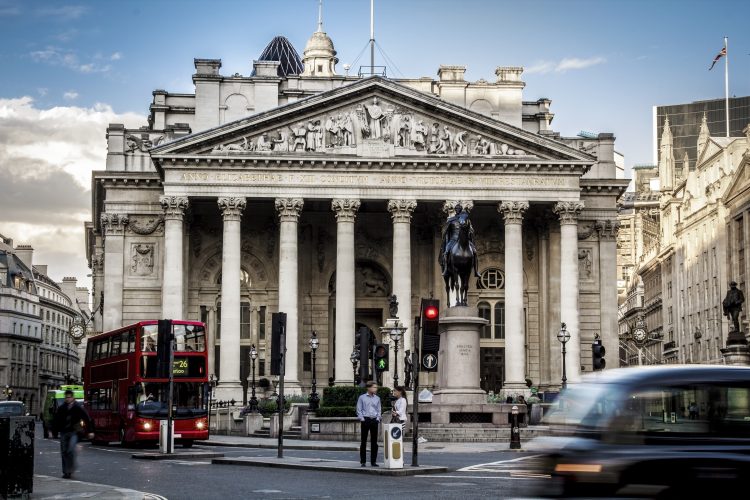The MPC’s inflation balancing act: challenges and critiques
- Like
- Digg
- Del
- Tumblr
- VKontakte
- Buffer
- Love This
- Odnoklassniki
- Meneame
- Blogger
- Amazon
- Yahoo Mail
- Gmail
- AOL
- Newsvine
- HackerNews
- Evernote
- MySpace
- Mail.ru
- Viadeo
- Line
- Comments
- Yummly
- SMS
- Viber
- Telegram
- Subscribe
- Skype
- Facebook Messenger
- Kakao
- LiveJournal
- Yammer
- Edgar
- Fintel
- Mix
- Instapaper
- Copy Link
Posted: 10 October 2023 | Dr Clive Black | No comments yet
Dr Clive Black explains his stance on the British Monetary Policy Committee and discusses inflation’s impact on food and society including lessons learned, challenges faced, and future imperatives.


By Dr Clive Black
The British Monetary Policy Committee (MPC) is a rare and privileged breed, and in more ways than one, the Committee being the interest rate setting body within the Bank of England (BoE). Rare, because this collective of folks from the narrow thinking veins of the BoE, the Treasury, Oxford University and one or two US investment banks, also seem to be particularly detached in identifying, predicting, understanding, and so helping to control inflation.
If such a matter was merely something for the chattering classes around afternoon tea it would not really matter. However, inflation is a powerful economic variable, one that it pays dividends to understand where it is coming from, how it operates, and so the mechanisms for its control. Mixed market economies, like the UK, operate in cycles, with inflation being a key dynamic, also conditioning the central bank’s thoughts around money supply and so its price, which is set by interest rates.
What the MPC is set to by the Bank, which is independent from the UK Government, is to seek to control inflation around a somewhat vague but sensible figure of two percent. Such a figure is sensible, because the Bank is most keen to avoid deflation, falling prices that if they take hold are very damaging to wealth and wider prospects, because that leads to all sorts of economic sins, whilst also preventing problematic ally high inflation, of the sorts that the UK is presently experiencing, that erode the standards of living, most notably of the poorest due to its regressive nature; when energy and food prices rise, those on the lowest of income suffer the most.


Black defines inflation as a “powerful economic variable, one that it pays dividends to understand where it is coming from, how it operates, and so the mechanisms for its control”
Now, controlling inflation is not totally within the MPC’s grasp, far from it. Prices, in market economies, reflect a wide range of forces, many of which emanate from outside these shores, especially in food markets where harvests, crude oil prices, currency values, and labour markets are at play. All of which brings us back to the present inflationary cycle and the sleeping at the wheel of the MPC and the Bank, that has been very problematic for the British food system as its decision-making has poured fuel on economic fires.
Without going into economic history, global central banks did a good job in amazingly distinctive and difficult times, when they brought the Western banking world from the grips of crisis post the Financial Crash of 2008. Whilst so, central bankers became overly concerned and obsessed with financial markets, as opposed to the real economy that surrounds it, such as farming, food manufacturing, the authentication industry, and so forth, and so kept monetary policy too loose for too long.
Put simply, the central banks, including the BoE, kept interest rates too low for too long, sitting at virtually zero for an unprecedented period of time, whilst also through the jargon of quantitative easing, printing money. Such steps will always fuel inflation, the seeds of which were well and truly sown in the late noughties. When the unforeseen pandemic came along, the folly of such actions became evident, firstly, because the tool cabinet to help stimulate the economy, i.e., cutting interest rates, was empty, and secondly, supply-side pressures were in place that the MPC, in its Threadneedle Street bubble, simply did not see.
Ask any food manufacturer or hospitality business about the labour market, post-Brexit and going into the pandemic, and virtually all of these big people users would have spoken to limited supply, low skill levels, shortages and the like. The pandemic compounded matters, limiting the supply of people, many becoming long-term ill, whilst other costs such as freight sky-rocketed. The MPC was oblivious to these processes. In fact, it was worse, they misunderstood them, the rather accident-prone Governor, Andrew Bailey, speaking to transitory processes., He could not have been more mistaken.
Now, the MPC and the BoE could not account for the terrible behaviour of Putin et al in Ukraine, albeit the British were amongst the most switched on to his heinous intentions. That invasion further pressurised food markets, however, and how, with soft commodity prices in CY22 skyrocketing. With high oil, freight and labour costs too, the food system faced a perfect storm, leading to UK ONS consumer prices rising to over 11 percent on October 2022, food prices peaking at nearly 20 percent. Returning to the regressiveness of inflation, alongside stratospheric home energy costs, living standards in the UK came under notable pressure.
Better late than never, the MPC woke up and how; a historic increase spree that took UK interest rates from 0.1 percent to 5.5 percent in less than two years, the horse already bolted but the door now closed. Interest rates take quarters, maybe even years, to take effect, and so the impact of the present cycle will not become clear until 2024/25 albeit for remortgages it will be sooner. The higher base rates are designed to cool the UK economy by making the cost of money more expensive, and the effects are starting to tell with UK ONS CPI now just under seven percent, expected by Shore Capital Markets to be c5 percent by December 2023 but still 3.0-4.0 percent by Christmas 2024.
I will return to the matter of inflation and interest rates in the future, suffice to say that inflation does not tend to arrive quickly or go away rapidly. Whilst not the sole cause of the troublesome price hike, that has been more of an ill for the food system than not, compressing volumes and encouraging down trading, the MPC has a lot to answer for and would do well to walk farms, food factories, supermarkets, and real hostelries to understand the realities of economic life, and so do a better job necessarily managing inflation for the food system and wider society in future.
About the author


Related topics
Food Security, Regulation & Legislation, Research & development, retail, The consumer, Trade & Economy
Related organisations
Bank of England (BoE), British Monetary Policy Committee (MPC), Oxford University, Shore Capital









